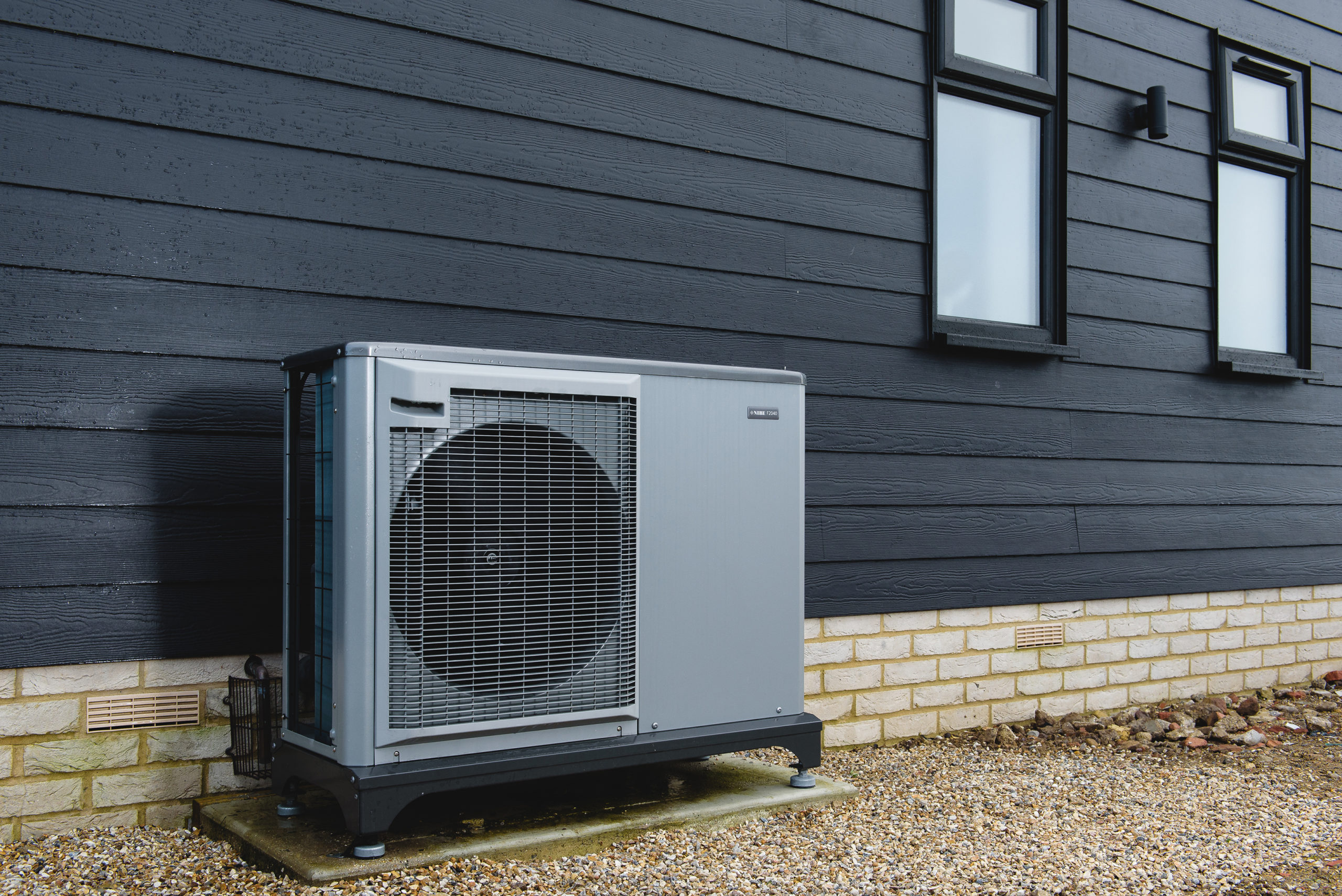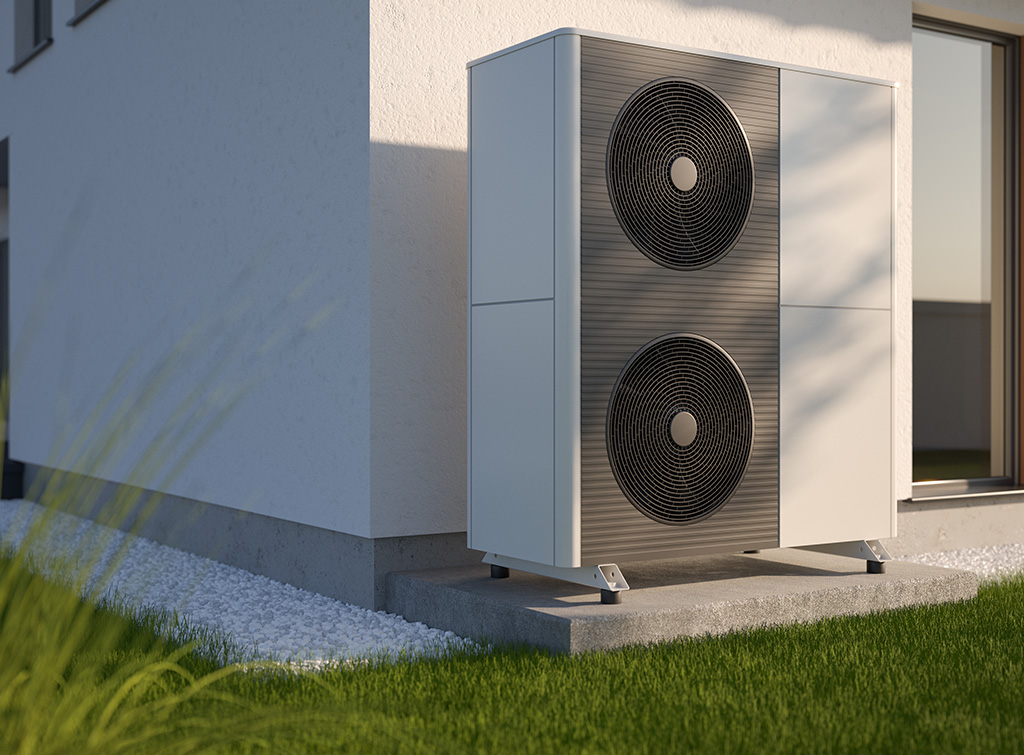With energy bills skyrocketing, many homeowners are looking into air-source heat pumps as an efficient heating and cooling solution.
Here’s a detailed look at why purchasing and installing an air source heat pump system comes with a hefty price tag.
Why Are Air Source Heat Pumps So Expensive?
Air source heat pumps can be expensive due to their high initial cost of purchasing and installing the system.
This is because of their high energy efficiency, low market competition, and the complex parts required to fabricate them.
In a poorly insulated home, it can cost as much as 40% more to run a heat pump compared to a traditional boiler.
Despite this, air-source heat pumps provide heating and cooling for your home.
Key Points
- Air source heat pumps have high upfront costs of £7,000 to £14,000
- They are energy efficient and can provide heating and cooling
- Lack of competition and complex parts contribute to the high price
Our Opinion
While the upfront cost of an air source heat pump is quite high, we believe the long-term energy savings and environmental benefits make them a smart investment for many homeowners.
Proper installation and maintenance are key to ensuring efficiency and cost-effectiveness.
The technology will likely improve and become more affordable over time.
With energy prices rising, air-source heat pumps are a future-proof heating and cooling solution.
Why Are Air Source Heat Pumps Expensive?
Air source heat pumps can cost £7,000 to £14,000 to purchase and install. This is substantially more expensive than simply replacing your existing gas boiler. There are several key reasons why air source heat pumps come with such a high initial price tag:
- High energy efficiency – Air source heat pumps can provide over 3 times more energy than they consume. But this impressive performance requires top-notch components and careful installation.
- Low market competition – The UK heat pump market is still quite small. With few suppliers, prices remain high due to a lack of competition.
- Complex parts – Heat pumps require specialized compressors and heat exchangers to draw warmth from the air. These parts must be precision-engineered.
The initial outlay for an air source heat pump system may cause sticker shock. But for many homes, the long-term savings on energy bills can make the investment worthwhile. Improving your home’s insulation can also help maximize efficiency and reduce running costs.
While certainly a major purchase, air-source heat pumps provide reliable heating and cooling for your home. Weighing the high upfront costs against potential energy savings can help determine if installing one makes sense for your household.
High Upfront Cost Breakdown
That steep £7,000 to £14,000 price tag for an air source heat pump can be broken down into several major costs:
- Heat pump unit – The outdoor unit containing the compressor and heat exchanger costs around £2,500 to £5,000.
- Indoor unit – The air handler unit inside the home ranges from £1,000 to £3,000.
- Labour – Installation by a certified heat pump professional averages £2,000 to £4,000.
- Miscellaneous parts – These include pipes, fittings, controls and thermostats adding £1,500 to £2,500.
There are also some additional costs to keep in mind:
- Electrical upgrades – Many homes require a new dedicated circuit for the heat pump, which can add over £1,000.
- Removal of old system – Taking out an outdated oil or gas heating system and hot water tank costs around £500 to £1,000.
- Permits and inspections – Required building permits and inspections may range from £250 to £500.co
With professional installation, permits, parts and labour included, the total air source heat pump system cost quickly adds up. However, the increased efficiency and potential energy savings compared to older heating systems make this a smart investment for many homes.
Installation and maintenance are significant factors driving up the cost of an air source heat pump. Proper installation by certified professionals helps ensure optimal performance and efficiency. This expertise does not come cheap, with labour accounting for £2,000 to £4,000 of the total air source heat pump cost. DIY installation is not recommended, as improper installation can lead to system underperformance, freeze-ups or breakdowns.
Air Source Heat Pump vs. Traditional Heating Systems
While the upfront cost is high, an air-source heat pump can provide significant energy efficiency savings over time compared to traditional heating systems.
By extracting latent heat from the outside air, air source heat pumps can deliver 3-4 times more energy as heat than the electrical energy they consume. This results in lower energy bills, with typical savings of £500-£1,000 per year.
The efficiency and longevity of air source heat pumps mean the system pays for itself within 5-10 years. So, despite the initial sticker shock, air source heat pumps deliver superior lifetime value through energy savings and reduced carbon emissions.
Trends That Will Drive Down Costs of Air Source Heat Pumps
The cost of air-source heat pumps is expected to decrease in the coming years as the technology improves and scales up. Here are some key trends that will help drive down costs:
- Manufacturing improvements and economies of scale. As production volumes increase, manufacturers can achieve greater efficiencies and cost reductions that they can pass on to consumers.
- Technological advancements. Ongoing R&D is enhancing performance and energy efficiency. New compressor designs, refrigerants and system controls will enable cost reductions.
- Streamlined installation. Training programs are expanding the qualified installer base. Standardized procedures and pre-fabrication will reduce on-site labour costs.
- Supportive policies. Government incentives like the Renewable Heat Incentive are making air-source heat pumps more affordable upfront for consumers.
- Increased competition. More manufacturers entering the market will spur competition and innovation.
Industry experts predict the installed cost of air source heat pumps will fall by 25-30% over the next 5-10 years. This will make them even more cost-competitive with traditional fossil fuel systems. Lower prices combined with rising energy costs will drive increased adoption of this green heating technology.
FAQ
Will air-source heat pumps get cheaper?
Air source heat pumps are expected to get cheaper in the coming years as technology improves and they become more widespread. Increased competition and economies of scale should bring down costs. Government incentives may also help make them more affordable.
What are the disadvantages of air-source heat pumps?
Disadvantages of air-source heat pumps include higher upfront costs, decreased efficiency in very cold weather, the need for electricity to run, and potential noise from the outdoor unit. They work best in temperate climates and require proper installation and maintenance.
Do air-source heat pumps use a lot of electricity?
Air source heat pumps are very energy efficient overall. However, they do require electricity to run the compressor and fans. The amount of electricity used will depend on factors like the size of the home, insulation levels, and climate. On average, they use 1/3rd of the electricity of conventional heating systems.
Why not buy a heat pump?
Reasons not to buy an air source heat pump include if you live in a very cold climate, have an older poorly insulated home, want to avoid any outdoor equipment, or cannot afford the higher upfront costs. They may not be the best choice for all homes and budgets.
Conclusion
Air source heat pumps are more expensive to purchase and install compared to replacement gas boilers, with costs ranging from £7,000 to £14,000. The higher cost is due to their efficiency and the lack of competition in the market. Despite this, air-source heat pumps provide an energy-efficient way to heat and cool your home using electricity. The long-term savings on energy bills can make up for the higher initial investment over time.


